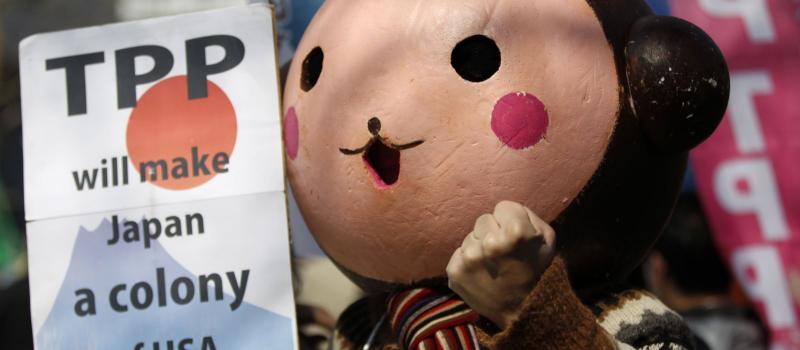Abe Bows To The Farm Lobby
posted by Richard Katz on October 1, 2014 - 3:25pm

This is an excerpt of an article written by our expert, Richad Katz, that appeared in the Wall Street Journal Asia edition.
For a more detailed discription of the discussions between Japan and the U.S. please refer to his other Alerts:
Tokyo Launches 'Blame Game" on TPP
Standoff at TPP Corral
GOP Gets Tough on TPP
The U.S.-Japan cabinet-level talks on the Trans-Pacific Partnership trade pact broke down on Wednesday largely because of Tokyo's refusal to sufficiently lower farm tariffs and other associated import barriers. The irony is that Japan, not America, has the most to gain from liberalizing food trade, as Japan's own reformers recognize.
Consider the costs of protecting farmers, most of whom are part-timers over the age of 60. Japanese consumers spend 13.7% of their total household budget on food, far more than the 6.3% spent by Americans, or even the 9.3% spent by Britons. If this share were reduced even to 11% by opening the food market to more competition, Japanese households would save 7.5 trillion yen ($72 billion) per year. To put that in perspective, the output of Japan's entire farm sector is only worth 5.4 trillion yen. The five "sacred" farm sectors that Prime Minister Shinzo Abe resists liberalizing—rice, beef and pork, dairy, wheat and sugar—produce just 3.6 trillion yen, or 0.8% of Japan's gross domestic product.
The conditions are ripe for a determined prime minister to override the powerful farm lobby. The LDP's opposition is weak, as are Mr. Abe's leadership challengers within his own party. He could even pick up votes from opposition representatives who support the TPP. Import liberalization and reform of land taxes and land-use laws would raise government revenues immediately and stimulate GDP, boosting the goals of Abenomics. If Mr. Abe will not act on structural reform when he has all these advantages, one has to question if he will ever act at all.

